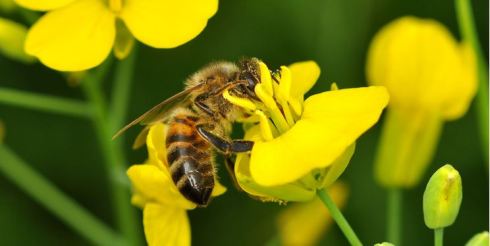Richard Bruce has drawn attention to a case reported by Reuters in February. The U.S. Environmental Protection Agency (EPA) had been seeking a $4.8 million settlement from Syngenta, alleging that dozens of workers at Syngenta Seeds’ former research farm on Kauai, Hawaii were exposed to the neurotoxic pesticide chlorpyrifos in 2016 and 2017.

Sold to Hartung in 2017, but Syngenta will ‘contract Hawaii-based seed production activities with the new owner’.
The final settlement was a meagre $150,000, with $400,000 more to be spent on worker protection, far less – as Alexis Strauss, acting regional administrator for the EPA’s Region 9, acknowledged – than the maximum allowed under the Federal Insecticide, Fungicide, and Rodenticide Act (FIFRA) and its regulations designed to protect workers.
 This would not surprise McKay Jenkins, whose book, Poison Spring (Bloomsbury, 2014), co-written with E.G. Vallianatos, has been called “a jaw-dropping expose´ of the catastrophic collusion between the Environmental Protection Agency [EPA] and the chemical industry.
This would not surprise McKay Jenkins, whose book, Poison Spring (Bloomsbury, 2014), co-written with E.G. Vallianatos, has been called “a jaw-dropping expose´ of the catastrophic collusion between the Environmental Protection Agency [EPA] and the chemical industry.
The IPS news agency reported that in 2013, the Kauai county council passed a law ordering the companies to create wider buffer zones and to disclose in far more detail than they do now what they spray, where and when.
A group of doctors in Waimea, which is surrounded by cornfields on three sides, testified that the number of cases of serious heart defects in local newborns was 10 times the national rate. But the head of the companies’ trade group, the Hawaii Crop Improvement Association, said that no credible source of statistical health information to support the claims had been seen. The association sued and a federal judge struck the law down, arguing that only the state can regulate pesticide use.
Background information
In Outside Online, whose wide remit includes health and fitness, Professor Jenkins writes about Kauai, a place where for years, multinational agrochemical companies have developed genetically modified seeds but kept their experiments secret from locals especially their use of pesticides to test the resilience of GM seeds to chemicals See his recent book: Food Fight: GMOs and the Future of the American Diet.

“In recent years over 16,000 acres of Kauai’s land have been leased to DuPont-Pioneer, Dow, and Syngenta because its tropical climate enables them to work their fields year-round. Company workers can plant experimental fields three seasons a year, which can cut in half the time it takes to develop a new genetically altered seed. They plant these seeds, then spray them with a wide variety of chemicals that are designed to kill weeds and insects. When they find food crops that can stand up to these toxins, they begin the process of taking them to market”.
The cases
In 2016 nineteen workers were exposed to chlorpyrifos after Syngenta sprayed the insecticide on a field of genetically engineered (GE) corn at its Kekaha farm. According to the complaint, the workers were allowed to reenter the field before the reentry period expired and without protective equipment. Ten workers were taken to the hospital and three were held overnight.
 Pearl Linton hand-pollinating corn plants at a Syngenta seed farm on Kauai.
Pearl Linton hand-pollinating corn plants at a Syngenta seed farm on Kauai.
At the time of the incident, an inspector from the Hawaii Department of Agriculture (HDOA) was present on the Syngenta farm and the EPA brought a civil administrative enforcement action against Syngenta for violating several federal statutes including worker protection standards, allegedly affecting as many as 77 workers.
A second incident occurred in 2017 when Syngenta failed to post warnings for worker crews containing 42 employees after applying chlorpyrifos, an organophosphate pesticide. EPA also found that Syngenta failed to provide both adequate decontamination supplies on-site and prompt transportation to a medical facility for exposed workers.
Hawaii is now considering bills in the state House and Senate to ban chlorpyrifos, as well as a proposal to require farmers to notify the public when they use certain pesticides and to create buffer zones around some schools. 
Hawaii State Capitol, Makai Entrance
May the decisions taken there show concern for the health of its people and environment, regardless of vested interest, and justify its magnificent architecture
=
Main source: https://www.outsideonline.com/2151976/ongoing-hawaiian-battle-shows-real-gmo-problem
o
Tags: chlorpyrifos, Hawaii Department of Agriculture, Kauai, McKay Jenkins, Richard Bruce, Syngenta, U.S. Environmental Protection Agency




























Recent Comments